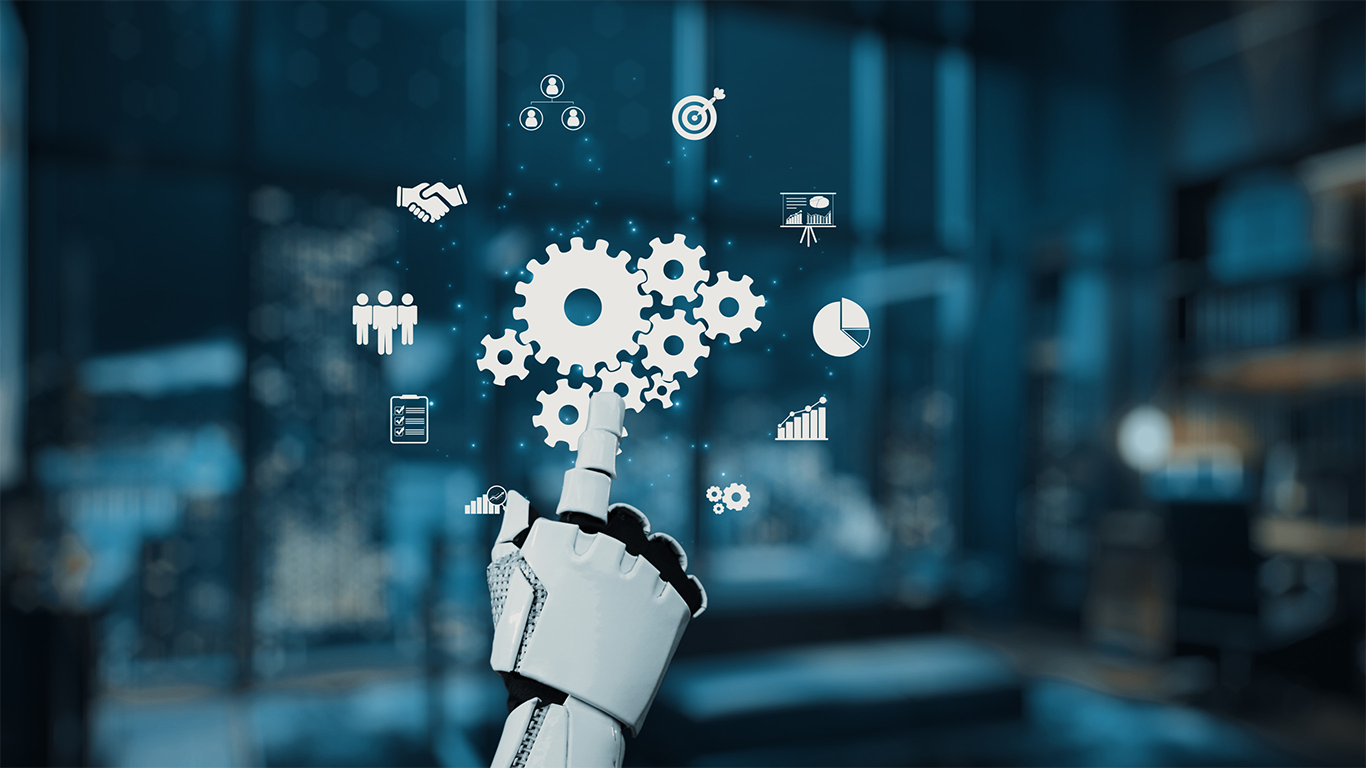The logistics and sourcing industry is undergoing a dramatic transformation, fueled by advances in artificial intelligence (AI), automation, and data analytics. As the global marketplace becomes more interconnected, businesses are looking for smarter ways to optimize their supply chains and stay competitive. The rise of innovative technologies is reshaping the way companies approach logistics, driving efficiency, reducing risks, and streamlining operations. This article delves into the future of smart logistics and sourcing, focusing on key trends, technological innovations, and emerging challenges.
FOOD NEWS: 10 celebrity chef restaurants to try in Arizona
The Role of AI in Logistics and Sourcing
AI is playing a pivotal role in transforming logistics and sourcing operations. By enabling real-time data analysis, predictive insights, and automated decision-making, AI empowers businesses to make better-informed decisions that boost efficiency and reduce operational risks.
Key AI Applications in Smart Logistics and Sourcing
- Predictive Analytics: AI helps businesses forecast demand more accurately, preventing inventory shortages and optimizing stock levels.
- Supplier Risk Assessment: AI-driven algorithms can evaluate supplier performance, identify potential risks, and help mitigate disruptions in the supply chain.
- Dynamic Pricing Models: AI continuously analyzes market trends and adjusts pricing strategies to optimize procurement costs.
- Smart Contracting: AI automates contract management, ensuring compliance with regulations and minimizing delays in transactions.
Automation in Procurement and Sourcing
Automation is revolutionizing procurement and sourcing by reducing manual intervention and increasing operational efficiency. Many companies are now turning to AI-powered platforms to streamline procurement processes and improve supplier collaboration.
Automation Trends in Procurement and Sourcing
- Supplier Matching Algorithms: AI connects businesses with the best suppliers based on factors such as cost, quality, and delivery performance.
- Automated Negotiations: AI-driven tools are automating price negotiations, allowing for faster and more efficient deal-making.
- Procurement Chatbots: AI chatbots are handling supplier inquiries, order placements, and even tracking inventory, freeing up time for procurement teams.
- Real-Time Performance Monitoring: AI tools continuously assess supplier performance, ensuring quality control and compliance throughout the sourcing process.
The Rise of Smart Warehousing
With the growing need for speed and efficiency, smart warehouses are becoming the backbone of modern logistics operations. Powered by AI, robotics, and the Internet of Things (IoT), these facilities are revolutionizing how goods are stored and distributed.
Key Innovations in Smart Warehousing
- Autonomous Mobile Robots (AMRs): AMRs transport goods around the warehouse, reducing the need for human labor and improving overall efficiency.
- AI-Powered Inventory Management: AI tools use predictive analytics to keep track of stock levels and avoid overstocking or stockouts.
- Augmented Reality (AR) for Order Picking: AR glasses assist warehouse employees by displaying visual information on where to find items, speeding up order picking.
- Automated Sorting and Packaging: AI and robotics-driven sorting systems help reduce the time it takes to sort and package products, allowing for faster order fulfillment.
AI and IoT-Driven Logistics Optimization
Combining AI with IoT technologies is significantly enhancing logistics optimization. This fusion provides businesses with real-time insights into their transportation and logistics operations, allowing for smarter, data-driven decisions.
AI and IoT Solutions in Logistics
- Route Optimization Algorithms: AI analyzes real-time traffic data to optimize delivery routes, saving on fuel costs and reducing delivery times.
- IoT-Enabled Fleet Monitoring: With sensors embedded in vehicles, businesses can track shipments in real-time and ensure timely deliveries.
- Predictive Maintenance: AI systems monitor vehicle health and predict maintenance needs, preventing breakdowns and unplanned delays.
- Autonomous Delivery Vehicles: Drones and self-driving trucks are improving last-mile delivery efficiency, cutting down on costs and delivery times.
Blockchain and AI for Transparent Sourcing
The integration of blockchain and AI technologies is bringing a new level of transparency to sourcing. These solutions help businesses verify the authenticity of products, track suppliers, and prevent fraudulent transactions.
Blockchain and AI Applications in Sourcing
- Immutable Transaction Records: Blockchain’s decentralized nature ensures that procurement records are tamper-proof, making the sourcing process more secure.
- Smart Contracts: AI automates compliance checks and enforces contract terms, reducing the possibility of disputes and delays.
- Counterfeit Detection: AI-driven systems analyze blockchain records to identify and prevent the circulation of counterfeit products.
- Decentralized Supplier Networks: Blockchain technology fosters trust and collaboration among suppliers, promoting more transparent global trade.
AI-Powered Risk Management in Supply Chains
As supply chains become more complex, businesses face a growing array of risks, from geopolitical instability to cyber threats. AI is playing a critical role in helping businesses mitigate these risks and enhance supply chain resilience.
AI Risk Management Strategies
- Geopolitical Risk Analysis: AI tools monitor global events and trade disruptions, allowing businesses to adjust their supply chain strategies in real-time.
- Climate Risk Assessment: AI models evaluate the environmental risks that could impact logistics operations, helping businesses prepare for natural disasters or climate change-related disruptions.
- Cybersecurity Enhancements: AI-powered security systems can detect and neutralize cyber threats, safeguarding the integrity of digital supply chains.
- Supplier Diversification Planning: AI helps businesses identify alternative suppliers, reducing dependency on a single source and increasing supply chain flexibility.
The Role of Sustainability in Smart Sourcing
Sustainability is becoming a major consideration for businesses looking to improve their sourcing practices. AI and automation are helping companies reduce their carbon footprint, improve sustainability efforts, and adopt more environmentally-friendly sourcing strategies.
Sustainable AI-Driven Sourcing Trends
- Carbon Footprint Tracking: AI tools monitor emissions throughout the supply chain and identify opportunities for reducing the carbon footprint.
- Sustainable Material Sourcing: AI helps businesses find suppliers who adhere to sustainability standards and ethical practices.
- Waste Reduction Strategies: Predictive analytics allow businesses to optimize their resources, reducing waste in the supply chain.
- Green Logistics Optimization: AI improves fuel efficiency and reduces emissions in transportation, contributing to more sustainable logistics practices.
East West Basics and Smart Sourcing Solutions
East West Basics provides businesses with the tools and solutions they need to build smarter, more efficient supply chains. As the logistics industry increasingly adopts advanced technologies like AI and automation, companies like East West Basics offer expertise in streamlining sourcing practices. Their solutions enable organizations to make data-driven decisions, ensuring a more agile, efficient, and sustainable approach to global sourcing and procurement.
Future Trends in Smart Logistics and Sourcing
The future of logistics and sourcing will be driven by continuous innovation in AI, automation, and digital technologies. Companies investing in these areas are poised to enhance their operational efficiency, improve customer satisfaction, and gain a competitive edge in an increasingly globalized market.
Emerging Trends in Logistics and Sourcing
- AI-Integrated Market Intelligence: AI will continue to analyze market trends, providing businesses with the insights they need to adjust their sourcing strategies.
- Autonomous Supply Chain Networks: Self-learning systems will revolutionize logistics and procurement, enabling real-time adjustments and enhanced efficiency.
- Digital Twins for Logistics: Virtual models powered by AI will simulate logistics scenarios to optimize decision-making processes.
- AI-Powered Procurement Assistants: Bots will automate procurement decisions, streamlining purchasing based on real-time data.
Millennium Alliance and the Future of Smart Logistics
Millennium Alliance is helping businesses shape the future of logistics by providing access to cutting-edge technologies and expertise. As supply chains evolve and become more reliant on AI, automation, and IoT, organizations like Millennium Alliance are empowering businesses to implement the best-in-class solutions for sourcing and logistics. Their platforms and resources enable companies to stay ahead of industry trends and drive more effective sourcing strategies.
Sortation Systems and Smart Logistics Optimization
Sortation systems play a crucial role in optimizing the efficiency of logistics operations, particularly within warehouses. These systems, which are often powered by AI and robotics, help automate the sorting of goods, improving the accuracy and speed of order fulfillment. By integrating advanced sortation systems, businesses can streamline their operations, reduce labor costs, and enhance the overall customer experience. The adoption of these systems is becoming increasingly common as companies seek to improve their warehouse productivity and reduce handling times, making it a key innovation in the future of logistics.
Conclusion
The logistics and sourcing industry is undergoing a profound transformation, driven by advancements in AI, automation, and emerging technologies. Companies embracing these innovations are set to enhance their operational efficiency, reduce costs, and improve sustainability. With AI-powered analytics, IoT-enabled logistics solutions, and blockchain-enhanced transparency, businesses can build resilient and adaptive supply chains. As technology continues to evolve, the logistics and sourcing landscape will become more data-driven, agile, and customer-centric, ensuring long-term success in an increasingly competitive and fast-paced global market.




